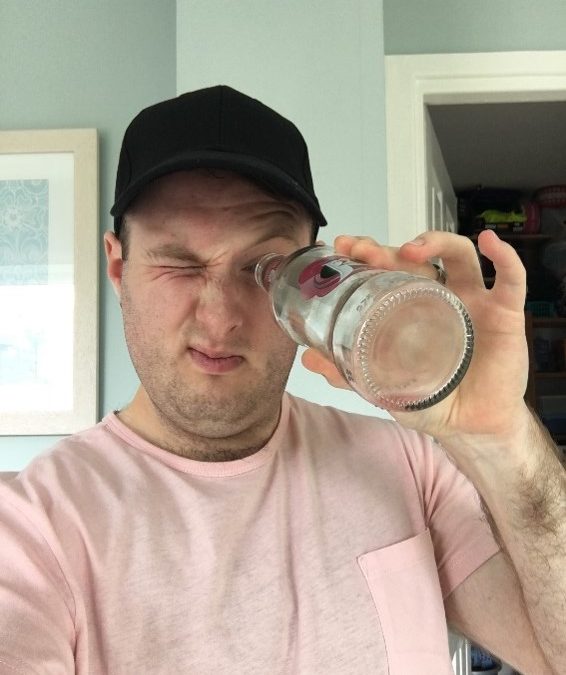In the first piece I ever wrote, I mentioned that when my symptoms were at their worst that ‘I turned to alcohol to cope because my anti-inflammatory tablets weren’t working and when I was drunk there was no pain, and I could move around easier’. Now, since I’ve been talking to more people in interviews and general conversations, the topic of self-medication comes up and I think it’s something worth talking about as a consequence of diagnosis delay and a lack of access to appropriate treatment. Of course, I’m not proud of my excessive drinking, it was definitely a problem, but I no longer feel the need to shy away from the subject.
I self-medicated with alcohol. It didn’t happen often, but it happened enough. I was in a lot of pain, I could barely move, and I wanted to be able to go out and spend time with people, like any other 19 – 20-year-old. Alcohol fixed that, if only for a few hours. Nothing hurt and I was in a great mood and if the magic juice took the pain away, why not drink more? Then comes the next day, the hangover, the gaps in the memory and of course all the usual pain and lack of mobility, only amplified more by the hangover.
I knew what I was doing, I knew it wasn’t the answer and I knew I had to stop.
And I did stop. However, one of the main things that made me stop was getting my diagnosis and on my drug trial. I had hope and there was a light at the end of the tunnel, instead of at the bottom of a bottle. The feeling of hopelessness can lead us down dark and dangerous paths, especially when they feel like the only ones available to us. From someone that did it, please drink responsibly, don’t use alcohol (or drugs) as a coping mechanism. It definitely creates more problems than you think it solves.
If I could give my younger self any advice it would be to turn to the people in your life that care about you. They love you and want to be there for you.
I still drink, but not to self-medicate. Sure I’ve still had messy moments (my friends can show you pictures), but the motivation behind my drinking now is to be sociable and enjoy myself with friends and family, rather than to block out the pain by getting black out drunk.
Thanks for reading : )
You can find Jack on his Instagram , his poetry Instagram and you can read more of his work on his own blog .
Help and support
As Jack explains, realising you have a problem with alcohol is the first big step to getting help.
A good place to start looking for help is with your GP. Try to be accurate and honest about how much you drink and any problems it may be causing you. Your GP will be able to suggest different types of assessment and support options available to you.
You can also search for alcohol support services in your area by using this link.
Some other useful organisations you might want to contact include:
- Drinkline is the national alcohol helpline. If you’re worried about your own or someone else’s drinking, you can call this free helpline in complete confidence. Call 0300 123 1110 (weekdays 9am to 8pm, weekends 11am to 4pm).
- Alcoholics Anonymous (AA) is a free self-help group. Its “12 step” programme involves getting sober with the help of regular support groups.
- SMART Recovery groups help people decide whether they have a problem, build up their motivation to change, and offer a set of proven tools and techniques to support recovery.



